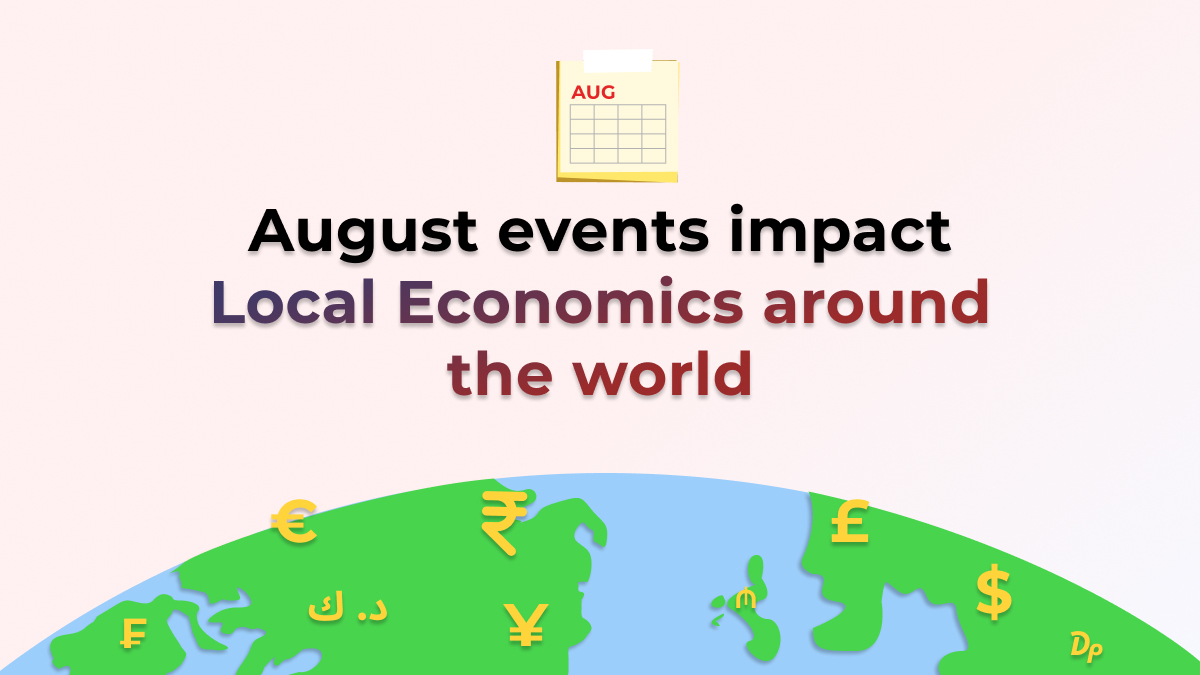August is a time when many exciting festivals and events happen around the world. From the colorful Notting Hill Carnival in London to the messy La Tomatina in Spain, these celebrations bring a lot of visitors and have a big impact on the local economy. Let’s see how these August events affect their cities and how much money they made last year.
Major August Festivals Around the World
1. Notting Hill Carnival (London, UK)
The Notting Hill Carnival takes place every August in London. It’s a huge street festival celebrating Caribbean culture with parades, music, and delicious food. More than a million people come to Notting Hill to join the fun.
2. Edinburgh Festival Fringe (Scotland)
The Edinburgh Festival Fringe is the biggest arts festival in the world. It happens all through August in Edinburgh, Scotland. There are many performances, including comedy, theatre, music, and dance. Around 3 million people visit the festival each year.
3. La Tomatina (Buñol, Spain)
La Tomatina is a fun festival in Buñol, Spain, where people throw tomatoes at each other. It happens on the last Wednesday of August and attracts about 20,000 people. It’s not just about the tomato fight; it also helps the local economy.
4. Summer Sonic (Tokyo & Osaka, Japan)
Summer Sonic is a big music festival in Tokyo and Osaka, Japan, held in mid-August. It features many popular and local music artists. With over 100,000 attendees, it’s a major event for music lovers and local businesses.
Economic Impact on Local Communities
Increased Tourism
One of the biggest benefits of these festivals is the number of tourists they attract. For example, the Edinburgh Festival Fringe brought in around 3 million visitors last year. These tourists spend money on hotels, food, and entertainment, which helps local businesses. Last year, the festival made about £130 million (around ₹13,000 crore) for Edinburgh.
Boost to Local Businesses
Festivals like Notting Hill Carnival help local businesses by bringing in visitors who spend money. In London, the Notting Hill Carnival generated about £93 million (around ₹9,300 crore) last year. This spending is a big boost for local shops, restaurants, and hotels.
Job Creation
Festivals create temporary jobs. For example, during the Edinburgh Festival Fringe, many people work as event staff, security, or performers. These temporary jobs help people earn extra money. The Notting Hill Carnival also created about 1,200 temporary jobs last year.
Benefits for Local Infrastructure
Improved Facilities
To handle large crowds, cities often improve their facilities. In Edinburgh, for instance, the city upgraded public transportation and public spaces to prepare for the festival. These improvements benefit everyone, not just festival-goers.
Enhanced Public Services
Events like La Tomatina need extra public services, such as sanitation and crowd control. Last year, Buñol spent about €2 million (around ₹18 crore) on these services. This helps keep the town clean and safe for both visitors and residents.
Long-Term Economic Effects
Sustained Tourism Growth
Successful festivals can lead to more tourists in the future. When people have a great time, they are likely to come back or tell others about the event. This helps tourism grow over the long term. For example, the Notting Hill Carnival has become a major event in London’s tourism calendar.
Community Investment
Money from festivals can be used to fund local projects. For example, some of the revenue from the Edinburgh Fringe is used to support community and arts projects, improving life for local residents.
Challenges and Considerations
Overcrowding
With so many visitors, managing crowds can be difficult. Festivals like the Edinburgh Fringe and Notting Hill Carnival need careful planning to handle large numbers of people and ensure safety.
Environmental Impact
Large festivals can create a lot of waste. Events like La Tomatina need to manage waste properly. Many festivals are working on ways to reduce their impact on the environment by recycling and managing waste better.
Balancing Local Needs
It’s important to balance the needs of local residents with those of festival-goers. Sometimes, the influx of tourists can disrupt daily life for locals. Organizers need to make sure the benefits of the festival outweigh any problems for local residents.
Conclusion
August festivals around the world play a big role in boosting local economies. They bring in tourists, increase spending in local businesses, and create jobs. They also lead to improvements in infrastructure and public services. However, managing challenges like overcrowding and environmental impact is important to make sure the benefits are enjoyed by everyone.
These events bring excitement and economic benefits to their cities. Whether it’s the vibrant Notting Hill Carnival or the fun of La Tomatina, these festivals help local communities thrive and create great experiences for visitors from all over the world.
